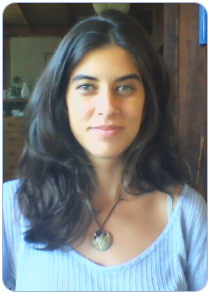ECO_CARE meets Mariana Homem de Mello Reinach
My name is Mariana Homem de Mello Reinach, I’m a social scientist and PhD candidate at the Federal Rural University of Rio de Janeiro, Brazil. My PhD thesis is dedicated to investigate the Bahia Peoples' Web (Teia dos Povos da Bahia), a Brazilian political alliance founded in 2012 by agrarian reform settlers, indigenous peoples, quilombolas and traditional communities, peripheral urban collectives and homeless groups. Peoples' Web was born with the aim of organizing a black, indigenous and popular alliance under the banner of the struggle for land, territory and autonomy.
Analyzing the ways in which the Peoples' Web operates, I realized that movements with a similar repertoire to that of the Peoples’ Web have been constructed by various indigenous peoples in Latin America for many years. In that research, I seek to understand how the People's Web connects to these broader movements, which have introduced significant innovations to the ways of conceiving and doing politics on the continent - giving centrality to ethnicity, ancestry, autonomy, the right to self-determination and the defense of land and territory. I believe that the Peoples’ Web is a privileged locus to observe how the values and ways of acting of the Latin American indigenous movement have been spreading to other social sectors and peoples in Brazil.
In the early 2024 I was invited to come to The Arctic University of Norway, in Tromsø (UiT) for a short-term exchange program within the ECO_CARE Project. Here, I had the opportunity to get to know the Sámi people and understand the similarities and differences of a colonial history that took place within Europe itself, as well as of the global indigenous movement that goes beyond the Latin American continent. In Norway, I dedicated myself to studying a traditional Sámi music (Yoik) and its multiple forms of expression today, through an ethnographic work carried out in one of the main Sámi music festivals, the Kautokeino Sámi Easter Festival. By doing this, I could realize that the current practice of Yoik relates to a global process of insurgent identities that is taking place all over the world.
My research at UiT deals with the nature of the Yoiks in Sámi cosmology and their profound relationship with individual and collective identity. As "sonic pictures", Yoiks are capable of describing and "making present" the memory of people, places or animals, as well as allowing the shamans to enter the dreamlike and spiritual universe. Yoiks are deeply connected to nature, since they are capable of revealing the musical essence of non-human beings, as well as the essence of people and therefore of human nature itself. As a central element of Sámi culture, state assimilation policies have made Yoiks a persecuted and highly stigmatized practice until the middle of the 20th century. Even so, this practice has remained alive in reserved and hidden spaces. Following trends in the international indigenous movement, the Sámi people underwent an intense process of political and cultural revitalization from the 1970s onwards, in which the retaking of the Yoiks and their creative renewal played an emblematic role.
At the Festival, I could observe a permanent dialog between "traditional yoik" (a capella) and "modern yoik" (with instrumental accompaniment and mixed with musical genres as diverse as pop, rock, folk, rap, and classical), which inspire reflections on the dynamics of cultural transformation, collective memory, ethnogenesis, and the complex relationship between appreciation vs. appropriation. This research on Yoiks could reveal some interesting aspects of the specificities of indigenous politics (ethnopolitics), the power of music as a historical, political, identity and affective vector, and the power of festivals as "indigenous museums" for the transmission, performance and renewal of indigenous culture in a contemporary world.

Mariana Reinach, ECOCARE PhD Student, 2024.
***
This post may be cited as: Mariana Reinach, ECO_CARE meets Mariana Homem de Mello Reinach, April 25, 2024.